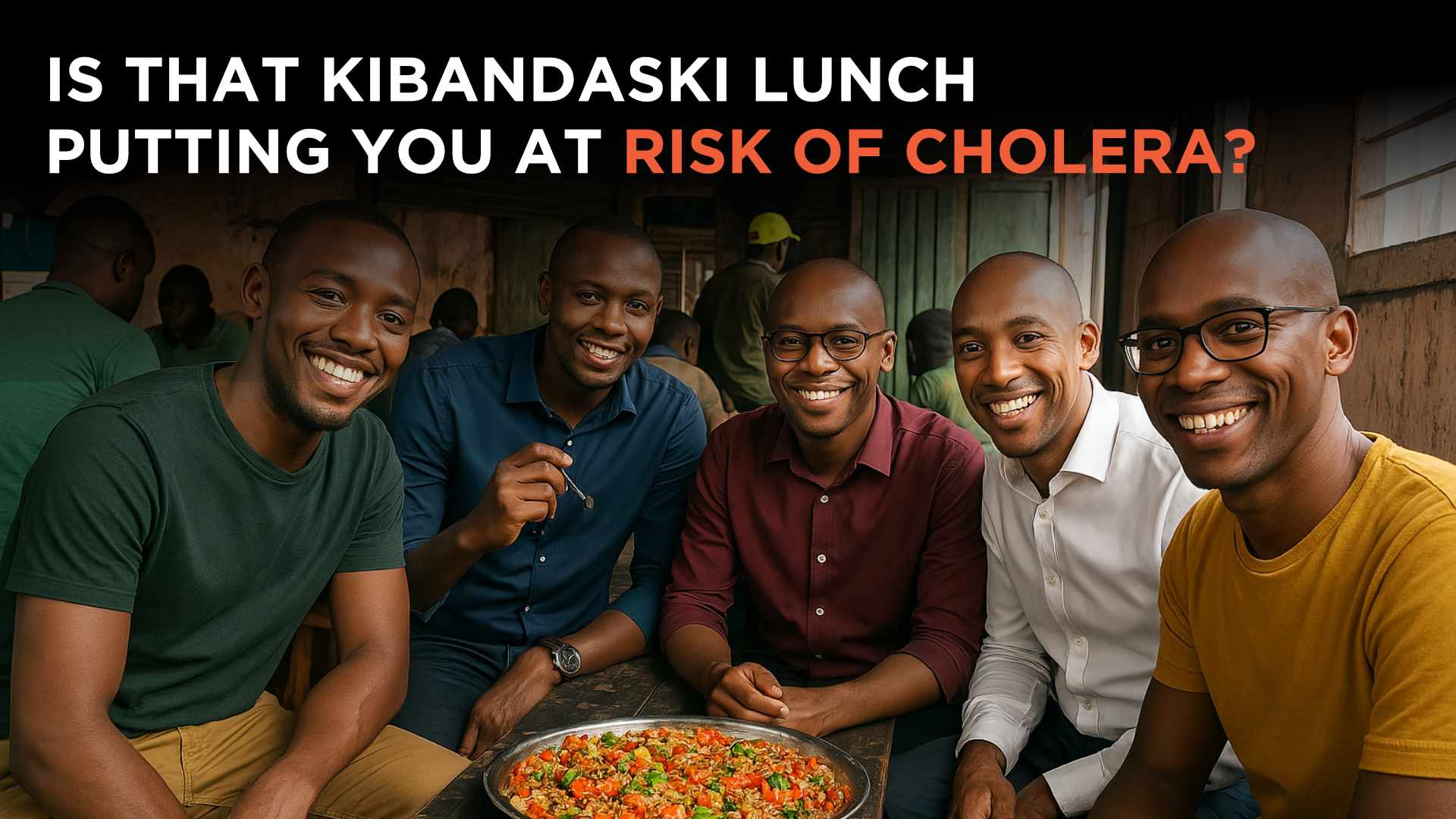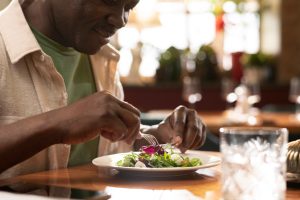
- HealthX blogs
-
by Stacy Shumwe
We all love good, hearty meals. Whether it’s a quick kibandaski lunch in the middle of your workday or a leisurely meal at home. It’s the fuel that keeps us going. From chapati madondo, beef fry, ugali with sukuma, and mayai pasua, to chips funga; these are the meals that speak to our Kenyan hearts. But with the recent cholera outbreak in Kenya 2025, we must stop and ask: Is that plate of food as safe as we think? Have food safety guidelines been followed?
Cholera: It’s Closer Than You Think
Cholera is a bacterial infection that’s spread when you eat food or drink water contaminated with faecal matter. It sounds bad, and trust me, it is. The bacteria can cause severe diarrhoea, vomiting, and dehydration. Without quick treatment, cholera can be deadly.
Now, here's the twist: cholera doesn’t care where you eat. Whether you're digging into your kibandaski meal, grabbing lunch at a posh restaurant, or enjoying a quick snack from the food stall near your office, if the food wasn’t handled properly, you could still be at risk. Understanding food safety is essential, especially during a cholera outbreak

Is Eating at Kibandas the Only Risk?
Not at all! While kibandaskis are often the go-to for many, unsafe food and water are everywhere. You could be eating at a restaurant, buying a quick snack at the supermarket, or even preparing a meal at home — if you’re not careful, the risk is still there.
It all comes down to food safety, how it is handled — and in the middle of an outbreak, it’s essential to stay cautious, whether you’re at a high-end restaurant or grabbing a quick bite at your favourite kibandaski.
How to Stay Safe from Cholera. No Matter Where You Eat
Whether you’re a regular at kibandaskis or prefer cooking your meals at home, there are simple steps you can take to protect yourself from cholera:
- Stick to freshly cooked food.
Ensure that your food is piping hot when served. Cholera bacteria can’t survive in high temperatures. - Wash your hands regularly.
Before you eat, always make sure you’ve washed your hands properly, especially if you’ve been using public transport, handling money, or touching shared surfaces. - Avoid raw salads or vegetables.
Those fresh veggies might look appealing, but unless they’ve been washed thoroughly with clean water, they could be carrying harmful bacteria. - Watch out for dirty plates or utensils.
If you’re eating at a kibanda, restaurant, or even at home, make sure your utensils are washed with hot water and soap. If they’re using the same basin repeatedly, that’s a red flag. - Drink treated water.
Water is a big carrier of cholera, so always opt for boiled, bottled, or treated water. If you’re unsure about the water source, carry your own.
What to Do If You Start Feeling Sick?
If you’ve eaten something suspect and start experiencing symptoms like vomiting, watery diarrhoea, or severe dehydration, don't wait around. Cholera can escalate fast, so the earlier you get help, the better.
At HealthX Africa, we’re offering 24/7 virtual medical consultations, so you don’t even have to leave your house to get checked out. If you feel something isn’t right, reach out immediately.
Final Thoughts: Is It Worth the Risk?
Food is an essential part of our Kenyan life, but right now, food safety is key. With the cholera outbreak in Kenya is in full swing, it’s important to make smarter choices, even when enjoying your favourite meal. From mayai pasua to beef fry or chapati madondo, it’s all about how your food is prepared, served, and handled.
So, next time you’re picking lunch, take a second to think: Is this food worth the risk?
Follow us on Instagram, Facebook and LinkedIn for more health tips!

